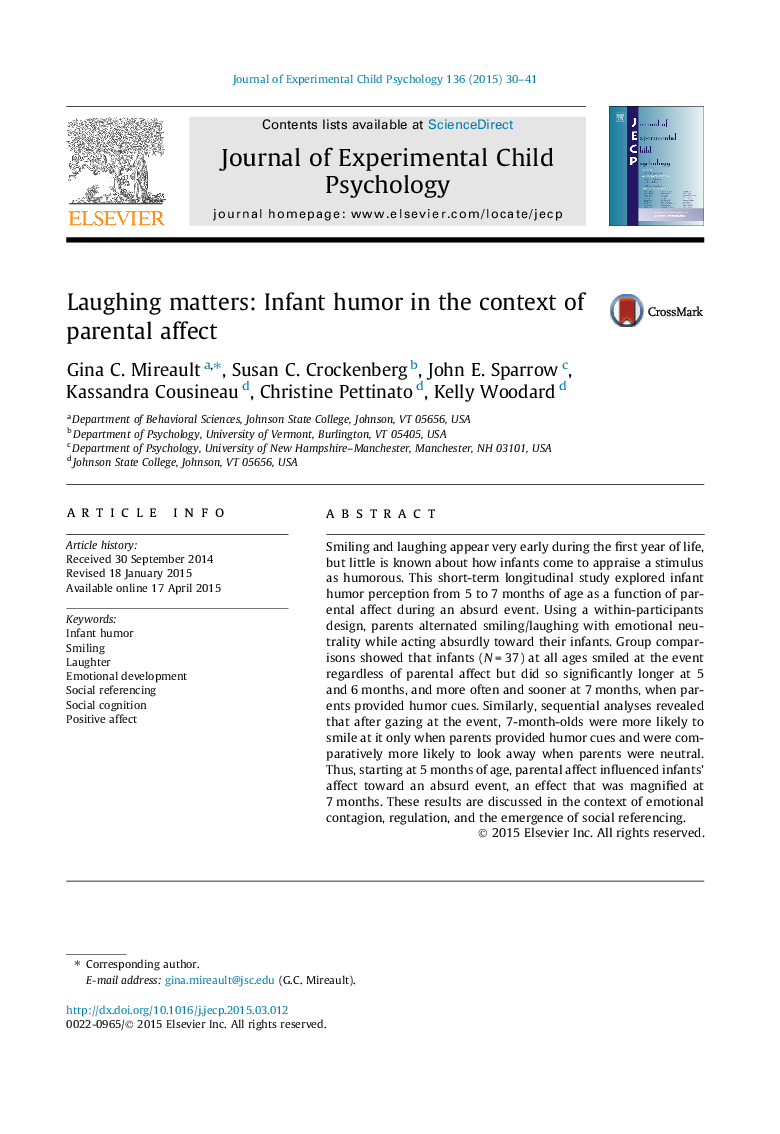| Article ID | Journal | Published Year | Pages | File Type |
|---|---|---|---|---|
| 917967 | Journal of Experimental Child Psychology | 2015 | 12 Pages |
•By 5 months of age, infants smile and laugh at the absurd behavior of others.•Others’ affective cues influence 5- to 7-month-olds to find absurd events more amusing.•Others’ neutral affect influences 7-month-olds appraisal of an absurd event as not amusing.
Smiling and laughing appear very early during the first year of life, but little is known about how infants come to appraise a stimulus as humorous. This short-term longitudinal study explored infant humor perception from 5 to 7 months of age as a function of parental affect during an absurd event. Using a within-participants design, parents alternated smiling/laughing with emotional neutrality while acting absurdly toward their infants. Group comparisons showed that infants (N = 37) at all ages smiled at the event regardless of parental affect but did so significantly longer at 5 and 6 months, and more often and sooner at 7 months, when parents provided humor cues. Similarly, sequential analyses revealed that after gazing at the event, 7-month-olds were more likely to smile at it only when parents provided humor cues and were comparatively more likely to look away when parents were neutral. Thus, starting at 5 months of age, parental affect influenced infants’ affect toward an absurd event, an effect that was magnified at 7 months. These results are discussed in the context of emotional contagion, regulation, and the emergence of social referencing.
